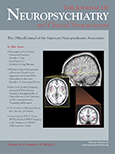Pharmacological Management of Persistent Hostility and Aggression in Persons With Schizophrenia Spectrum Disorders: A Systematic Review
Abstract
The incidence of aggressive behaviors is higher among persons with schizophrenia spectrum disorders (SSDs) than among persons without such disorders. This phenomenon represents a risk to the well-being of patients, their families, and society. The authors undertook a systematic review of the English language literature to determine the efficacy of neuropharmacological agents for the management of hostility and aggression among persons with SSDs. The search combined findings from the Medline, EMBASE, and PsycINFO databases. Ninety-two full text articles were identified that reported relevant findings. The American Academy of Neurology criteria were used to determine levels of evidence. Paliperidone-extended release is probably effective for the management of hostility among inpatients with SSDs who have not been preselected for aggression (Level B). Clozapine is possibly more effective than haloperidol for the management of overt aggression and possibly more effective than chlorpromazine for the management of hostility among inpatients with SSDs who have not been preselected for aggression (Level C). Clozapine is also possibly more effective than olanzapine or haloperidol for reducing aggression among selected physically assaultive inpatients (Level C). Adjunctive propranolol, valproic acid, and famotidine are possibly effective for reducing some aspects of hostility or aggression among inpatients with SSDs (Level C). Paliperidone-extended release currently appears to be the agent for the management of hostility among inpatients with SSDs for which there is the strongest evidence of efficacy.



